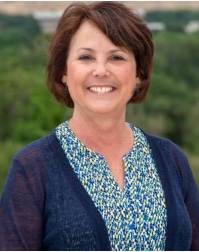Idaho’s new apprenticeship route to teacher certification is catching on in places like Middleton, but education leaders have concerns with the concept.
“Absolutely, we’re interested,” said Marc Gee, superintendent of Middleton School District.
Middleton identified at least two classified employees who may enter the pilot program next fall but Gee wasn’t ready to name them.
Idaho’s three-year model creates an affordable pathway for candidates who possess the skill and aptitude but lack a bachelor’s degree, because they receive a salary while obtaining on-the-job training and education preparation for licensure.
“The program is intended to be one more tool to help address the educator shortage problem we have in rural and remote communities. The hope is that it will create a pathway for experienced educators to gain certification and help fill the teacher void in high-need areas,” said Mike Keckler, State Board of Education chief communications officer.
But several university teacher preparation programs noted problems with Idaho’s model.
“It’s great to be able to get more teachers in the classroom, but we worry about their preparation,” said Sherry Dismuke, Boise State University’s assistant dean of Teacher Education.

Dismuke is concerned that Idaho won’t require a bachelor’s degree, needed for reciprocity. Another concern is allowing an apprentice to be the teacher of record — the lead teacher in charge of a classroom.
“When our State Board developed the Idaho program, these are two things that they left out,” she said. “We have made that very clear.”
To see the program’s standards, use this link.
As the lead teacher, apprentices would miss the full benefits of the student teaching semester, a cornerstone of traditional education programs.
- They have less time to observe and learn from their master teacher.
- They don’t get the same amount of mentoring/coaching. School districts promise to provide mentoring and coaching, but rarely provide as much as needed.
- Some are too quickly thrust into the role of full-time teaching. They would have benefited from the more gradual, measured approach eventually teaching the full day.
Choosing to assign an apprentice as the teacher of record is a local decision, said Katie Shoup, the State Board of Education’s Educator Effectiveness Program Manager.
Initially, Middleton will entrust apprentices with partial responsibility supporting a mentor teacher. With experience, Gee will add more duties as they progress.
“Moving towards that idea of ‘I’m going to take on a full class on my own at some point in this process,’” Gee said.
“The university is the sole gatekeeper of the institutional recommendation for certification. We have to take on part of that role as gatekeeper. I feel confident that we can do that,” he said.
Most schools have one or more paraprofessionals, school secretaries, special education aides or substitutes who standout because they possess attributes of an exceptional educator. Gee describes them as “natural teachers,” and listed some of their attributes.
- They’ve not gone through all the pedagogy but they’re naturally engaging. They have a feel for how to manage a classroom of kids.
- They’re able to take information and boil it down to manageable chunks. And they do this just because of their life experiences.
- A substitute teacher who can deliver a lesson plan the same way a teacher would.
- A middle-aged person volunteering to bring youth together for service projects. They’re good at organizing, learning how to manage and learning to engage young people and keep them focused on a goal.
- Sometimes it’s the person who has filled so many different roles within a school system. They have a feel for how schools work.
“Education is a people-centered profession. And as you live your life as an adult, there are certain experiences that you have that maybe helped you learn those lessons,” Gee said. “For most people, the traditional education program is a good way to become a teacher but there are people out there who have those skills. And we’d like to be able to get them in a more practical, efficient way into the classroom.”
As candidates gain practical experience in the school as a true apprentice, the second program component is a specific set of academic courses that need to be completed.
Idaho has five approved “Related Technical Instruction” providers: Brigham Young University – Idaho; College of Southern Idaho; Idaho State University; Lewis-Clark State College; and Northwest Nazarene University.
Each university has tailored a program specifically for the K-12 registered teacher apprenticeship program. To read more about what they offer for prospective students, use this link.

“Here at Lewis-Clark State College, we wholeheartedly support alternative, innovative pathways to becoming a certified teacher,” said Mark Haynal, chair of Teacher Education and Mathematics.
But Lewis-Clark also believes the program should require a bachelor’s degree. “Not requiring a bachelor’s degree to be a teacher further de-professionalizes the teaching profession,” Haynal wrote.
BSU is not listed as an approved provider but the college is willing to provide resources to districts that intend to meet specific Idaho standards and willing to create a program that follows the National Guidelines for Apprenticeship Standards K-12 Teacher Occupation.
“Apprentice electricians don’t get to do electrician work without significant oversight by the master electrician, presumably because that’s a life or death situation. I’m hopeful the same will be true of apprentice teachers, but my understanding is that things are progressing in the opposite direction,” said Taylor Raney, director of the University of Idaho’s teacher education program.
